Feminist Hardcore
Powerful music by powerful women, designed to make you shut the fuck up and listen or scream along. Woman up, looser. Radical action: our key to survival!
Music, opinions, and portfolio of Mark Eagleton, musician and web developer in Northern CA.

Powerful music by powerful women, designed to make you shut the fuck up and listen or scream along. Woman up, looser. Radical action: our key to survival!
American democracy is quicky crumbling under the threat of fascist authoritarianism. It’s time to take measures to protect the freedoms we have left.
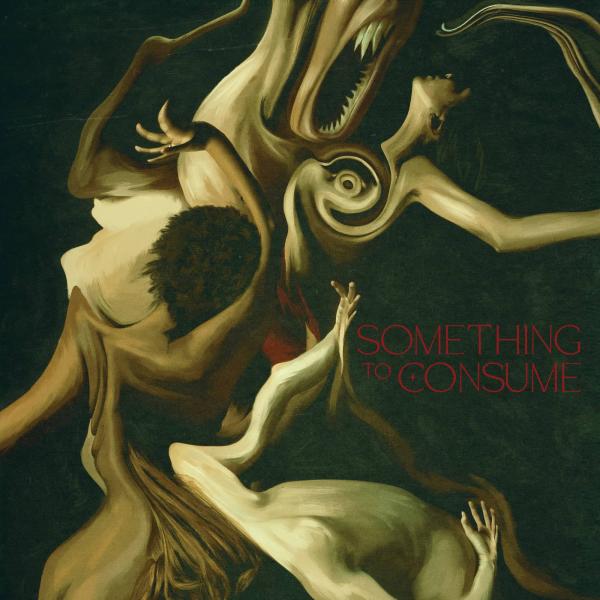
Back in June, I stumbled upon Die Spitz’s performance on Audiotree Live on YouTube, and I have pretty much had their entire discography on loop ever since. No, I’m not exaggerating. I have very much been anticipating the release of Something to Consume since it was announced in early July, and I am not disappointed.

There is a common misconception that the small-ish, central valley Ag town I live in leans republican. It doesn’t. In fact, this centry in the Democrat and Republican races, it’s averaged 60% blue in every election since Obama beat McCain in 2008. Sure, we have a vocal MAGA minority, but miserable people are loud.
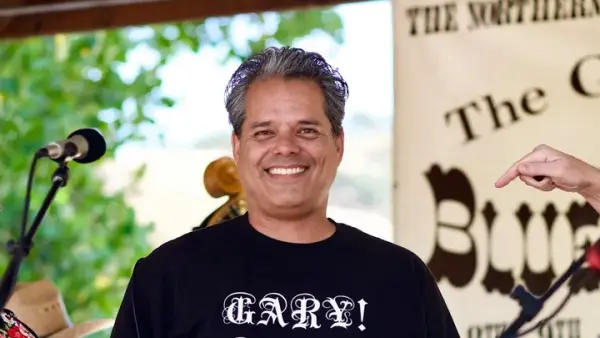
My friend, band mate, and luthier, Gary Vessel suffered a severe stroke on May 7, 2025. Gary is facing massive medical bills, and is unable to run his shop or perform for the foreseeable future. Affordable health care is a luxury most musicians and many small business owners don’t have access to in the United States. He and his family could really use financial support if you are so inclined. Consider contributing or attending a Red Dog Ash performance in the future.

Cobra enemy. Not Canada. PNG up there, or download the SVG.
Settings > Apple Intellegence & Siri > Talk & Type to Siri > Turn off Press Side Button for Siri
or
Settings > Accessibility > Side Button > Select “Off” under “PRESS AND HOLD TO SPEAK”
Meta (Facebook, Instagram, WhatsApp, Threads) is making news again that it’s doubling down on being more friendly to shitty behavior and misinformation again, prompting another exodus of people who care about marginalized groups, facts and science. I left Facebook 7 years ago for some of the same reasons, so I thought it might be helpful to give an update on how it’s going.
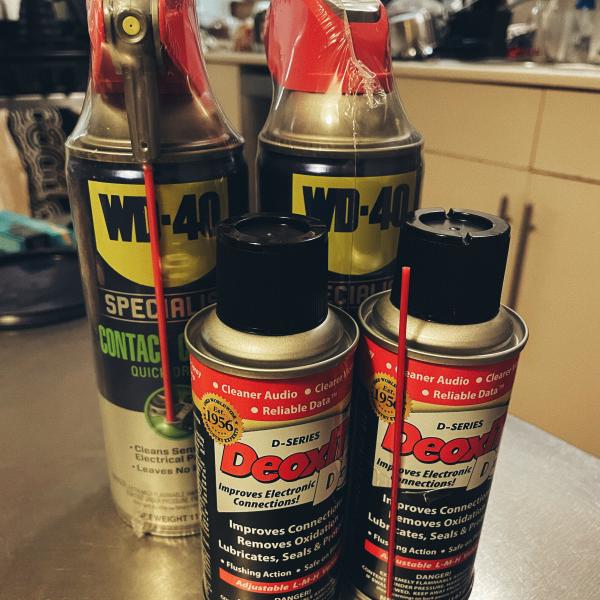
Amp techs often throw around the phrase “service the amp,” but what does that really mean? Are all service technicians on the same page when they say they are going to give your amp “a full service?” Probably not. I know what’s on my page, though, and it seems like I’m always refining it, so I thought it would be helpful if I shared my checklist. Yes, it is an actual checklist. It can be hard to keep track of where you are on every repair when you have multiple items, waiting on parts, approvals, or for you to be finished with the previous thing.
This planet is literally being covered with disposable junk and a shrinking knowledge base on how to fix anything. It’s weird to me that we live in a world where we fetishize the repair persona. There is so much online content on how to make your new jeans look like you fix oil rigs in the badlands of South Dakota rather than actually showing how to do something.
—Pat Kauffman
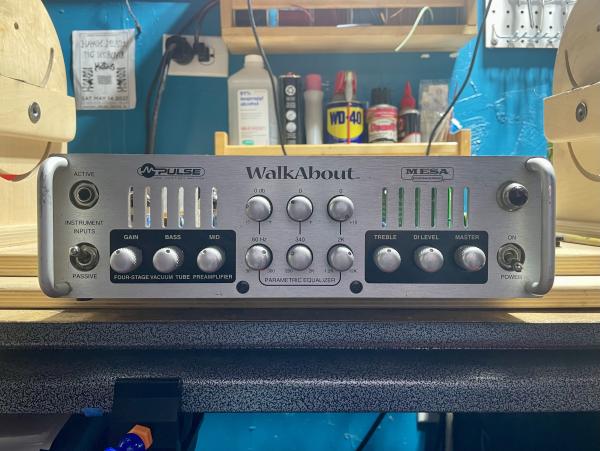
My main amp for the past 20 years has been a Mesa WalkAbout Scout 1x15 combo. It’s a very versatile amp. The three band perimetric EQ is great for dialing out feedback for double bass. I’ve only had to have it serviced once about ten years ago when it started making a cracking sound. Well, it started cracking again last week.
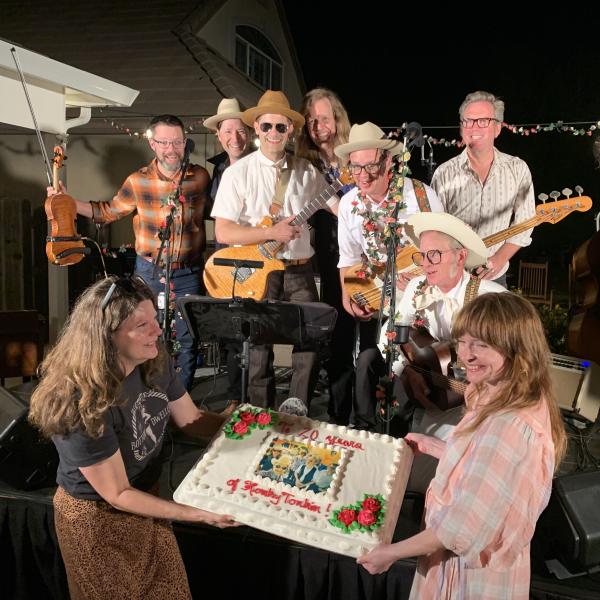
It’s not terribly common for a band to stick together for a whole decade, let alone two! This year, the Bottom Dwellers celebrate our 20th anniversary! We even threw a big ol’ block party. I figured this would be a good occasion to share a few stories.
I don’t believe citizens should be allowed to have guns. Not to buy, not to inherit, not to have in any capacity. Because efforts to sufficiently regulate them in the United States have been unsuccessful, I think applying a severe social stigma to having one might be the most effective option at this point.

I played 100 shows last year, and I’m on track to play at least that many again this year. These aren’t back-to-back touring shows with the same band every night. There is no tour manager, itinerary, or even a single set list to memorize. This is by far the busiest I have ever been, and it’s really quite challenging to manage a schedule like this. I get asked quite frequently how I do it. This is the answer.
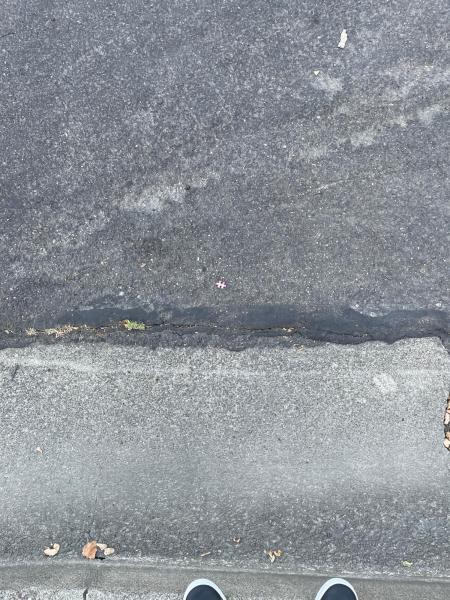

Starved for live music during the pandemic, Kristyn and I stumbled upon Kassi Valazza one evening as we desperately scoured social media to find artists streaming online. We were instantly lost in the somber, delicate delivery of her songs, punctuated by the most tastefully haunting electric guitar. It would be three more years before we got the chance to catch her live.
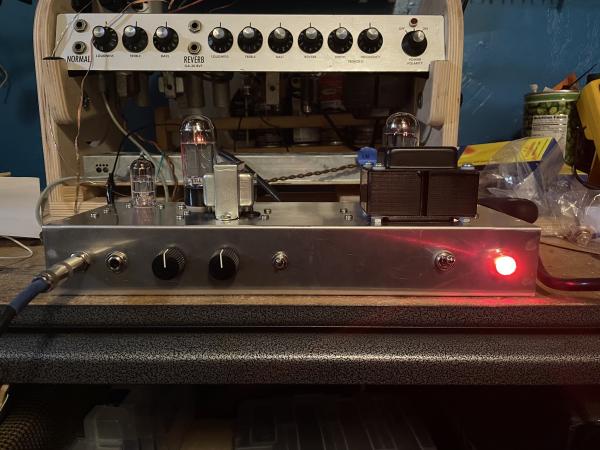
I’ve been studying the art of tube amplifier design for about ten years now, and actually repairing them for about five. I love analizing schematics, pouring over the inside of an amp chassis, and studying the layout choices made by the designer. It was only a matter of time before I took a crack at it myself. That time finally came.
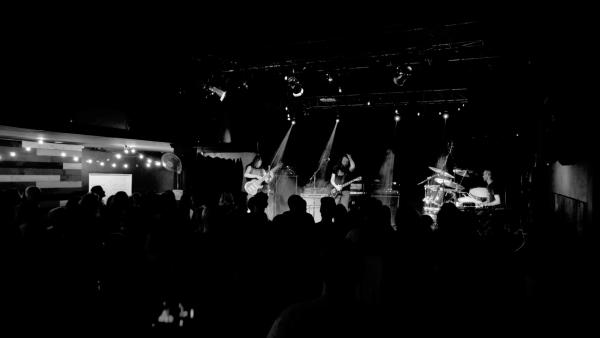
Bell Witch has been one of my favorite bands since I discovered them some six years ago. Seeing them live has been a huge priority for me. They came through my area a few times prior to the pandemic, but each time, I was booked myself. And then there was the pandemic, of course.

A number of Tuesdays have passed since Julianna Riolino’s incredible first full-length solo record, All Blue dropped (and 188 Tuesdays have passed since I last shared new music with you!), but this record is just so good that I had to break the silence.
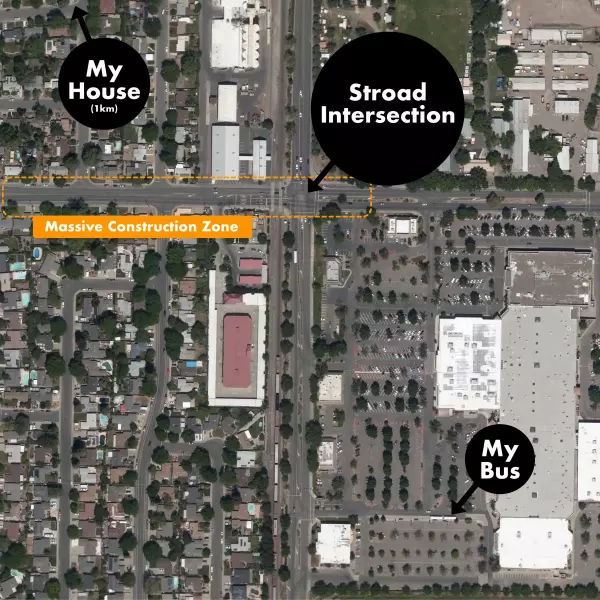
Longtime visitors to my website will remember that I once worked my ass off to land a job in the town where I live that was only an 8-minute bike ride from my house. That job moved to a neighboring city at the start of the pandemic, and has been the cause of much turmoil ever since.
I play double bass for a few bands. Here is where I’ll be next:
in El Cajon, CA w/Geoffrey Miller • Cover: TBD • All Ages • 6:00 pm More info
in Anaheim, CA w/Geoffrey Miller • Cover: TBD • All Ages • 8:00 pm
in Newport Beach, CA w/Geoffrey Miller • Cover: TBD • All Ages • 5:00 pm More info
in Folsom, CA w/Geoffrey Miller • Cover: TBD • 21 and Over • 8:00 pm More info
in San Francisco, CA w/Geoffrey Miller • Cover: TBD • 21 and Over • 9:00 pm More info